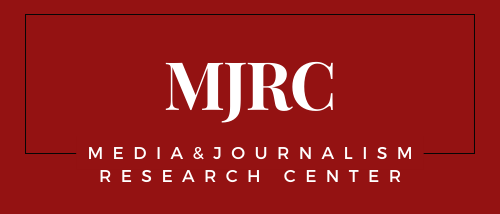New Study: How Social Media Is Redefining News and Public Trust in Eastern Europe
London / Tallinn / Santiago de Compostela — A new study by the Thomson Foundation and the Media and Journalism Research Center (MJRC) offers timely and critical insights into how rapidly evolving audience behaviors are reshaping journalism and news consumption in Eastern Europe. Focusing on Hungary, Romania, and Poland, the research highlights the growing influence of social media on how citizens access information, perceive journalistic credibility, and engage in civic life.
Carried out in the aftermath of Romania’s annulled 2024 presidential election—and ahead of key elections in all three countries—the study draws on 82 in-depth interviews with social media users. Four case studies form the backbone of the research: TikTok users in Romania, Facebook users in Hungary and among ethnic Hungarians in Romania, and X (formerly Twitter) users in Poland. Taking a qualitative, people-centered approach, the study examines not only what people consume, but why—and what it reveals about democratic engagement.
Key findings paint a complex picture. While social media continues to dominate the information landscape, user engagement is increasingly shallow. The study introduces the term “blind scrolling” to describe a passive, near-automatic habit of browsing without purpose—prevalent across all age and education groups. Respondents also reported rising levels of fatigue and frustration with platforms they nonetheless feel unable to abandon.
Platform use varies: TikTok is a favorite among young Romanians for its entertainment and influencer-driven content; Facebook serves as a key social space in Hungarian communities; and X appeals to politically engaged users in Poland for its fast-paced, relatively ad-free environment.
Perhaps most striking is the erosion of trust in professional journalism. Many participants no longer rely on traditional news outlets, citing political bias, corporate influence, and shallow coverage. In Romania, the distinction between journalists and influencers is increasingly blurred—particularly on TikTok, where non-journalists often act as de facto political commentators.
The study calls for a shift toward audience-led journalism, prioritizing engagement over one-way content delivery. It also emphasizes the urgent need for long-term media literacy initiatives and robust policy frameworks to support independent journalism, particularly in politically vulnerable settings.
The research was conducted by a consortium of institutions, including Ovidius University Constanța, the University of Bucharest, Euractiv Romania, the Romanian Institute for Research on National Minorities, Sapientia Hungarian University of Transylvania, the Media Forum Association Hungary, and the University of Warsaw.
The full study is available here.
Photo: Licensed under the Unsplash+ License
Invest in independent media research and join a community of practice.
Your contribution supports MJRC’s investigations and global analysis. As a supporter, you can receive early access to new findings, invitations to small-group briefings, inclusion in our Supporters Circle updates, and the option to be listed on our Supporters Page.
Contribute to MJRC
